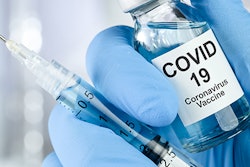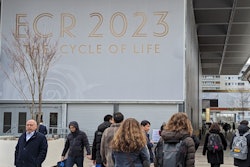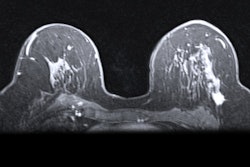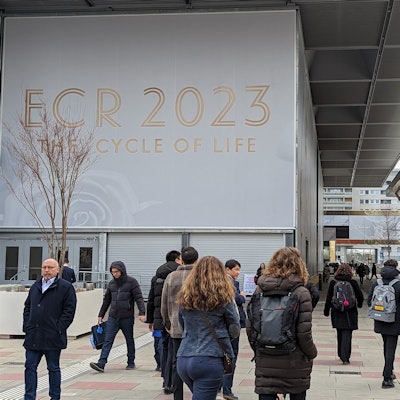
Preliminary results for the Biopsy and Surgery Correlation (BISUCO) trial, shown March 1 at ECR 2023, suggest that vacuum-assisted biopsy guided by breast MRI is promising in successfully deescalating breast cancer treatment.
In her presentation of the team's findings, Dr. Sara Jiménez Arranz from University Hospital October 12 in Madrid noted that the researchers found high sensitivity and specificity for their method, as well as no false-negative cases and a 100% negative predictive value.
"These preliminary results are very, very promising," Arranz said.
In normal scenarios, breast tumors are diagnosed by mammography and supplemental imaging. From there, the suspected lesions are biopsied and then undergo neoadjuvant chemotherapy, usually guided by MRI. Surgery then confirms complete pathologic response.
Previous research suggests that MRI is the best imaging modality when it comes to measuring complete pathologic response in breast cancer patients. However, several factors affect MRI's accuracy in this setting. These include definitions of complete and incomplete pathologic response, type of baseline MRI lesion, and type of treatment, among others.
Arranz cited several studies in her presentation showing that MRI is best for evaluating treatment response for HER2 and triple-negative cancers and that vacuum-assisted biopsy should be guided by MRI, albeit by experienced physicians and radiologists.
For the BISUCO trial, Arranz et al wanted to establish the accuracy and security of vacuum-assisted biopsy guided by MRI in evaluating postchemotherapy complete pathologic response. While 25 patients were included in the trial, the researchers focused on 22 patients with HER2 and triple-negative breast cancer with complete or near-complete MRI response for their preliminary results.
Biopsies were performed with seven-gauge, large-caliber needles to gather a minimum of six cores. Vacuum-assisted biopsy guided by MRI was performed in 18 patients while the other four had ultrasound guidance.
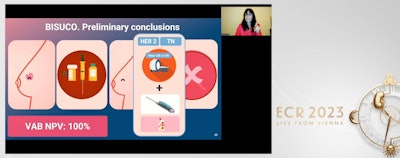 Dr. Sara Jiménez Arranz from University Hospital October 12 in Madrid presented preliminary findings from her team's study, the Biopsy and Surgery Correlation (BISUCO) trial, showing that vacuum-assisted biopsy guided by MRI is promising in deescalating breast cancer surgery.
Dr. Sara Jiménez Arranz from University Hospital October 12 in Madrid presented preliminary findings from her team's study, the Biopsy and Surgery Correlation (BISUCO) trial, showing that vacuum-assisted biopsy guided by MRI is promising in deescalating breast cancer surgery.Out of the tumors evaluated, 55% did not receive residual enhancement, indicating complete pathologic response. The other 45% had residual enhancement, meaning near-complete response, of which 60% had nonmass residual enhancement. Additionally, all cases found postchemotherapy changes in biopsy and surgery.
The researchers found 17 true-negative and four true-positive cases, where biopsy and surgery confirmed their statuses. They also found one false-positive case where biopsy detected cancer, but surgery found nothing. However, Arranz said that vacuum-assisted biopsy may have removed everything in this case.
Finally, they reported no false-negative cases. Arranz reported that these results translate to 100% sensitivity, 94% specificity, a positive predictive value of 80%, and a negative predictive value of 100%.
"The negative predictive value ... means that if vacuum-assisted biopsy does not find residual cancer, there is all probability of not having residual cancer in surgery," she said.
Arranz said that data from the three other patients in the trial will be updated, but that "the results are the same." She added that follow-up studies will be performed to confirm these "fantastic" results.






